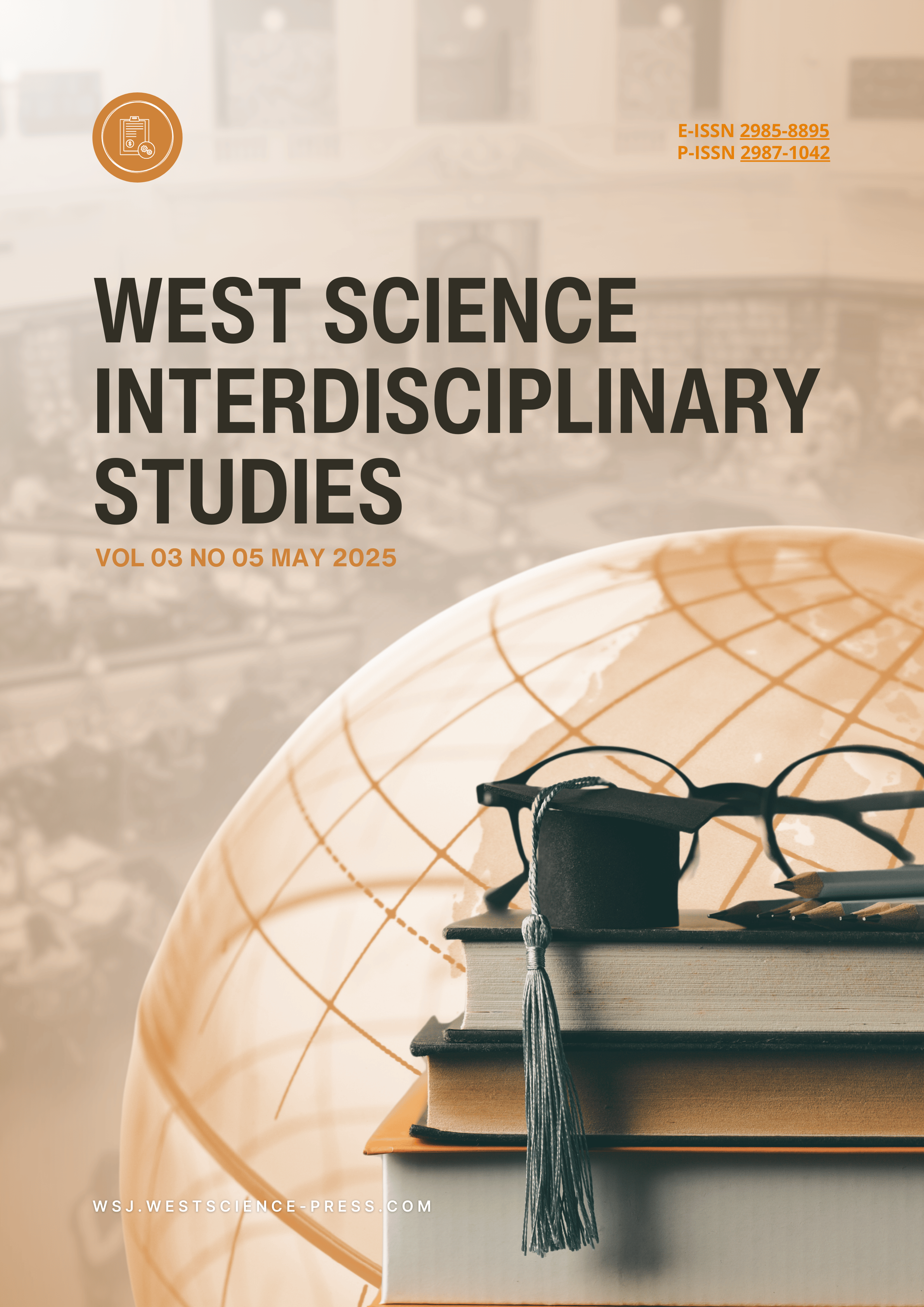Al-Ghazali's Conception of Dreams: The Mechanism of Dreams and the Soul's Role in Epistemological Knowledge
DOI:
https://doi.org/10.58812/wsis.v3i05.1869Keywords:
Al-Ghazali, Dreams, Soul, Epistemology, Spiritual KnowledgeAbstract
This paper explores Al-Ghazali’s conception of the soul and its role in the mechanism of dreams. According to Al-Ghazali, the soul is an intricate, metaphysical entity composed of interconnected elements—nafs (soul), ‘aql (intellect), qalb (heart), and ruḥ (spirit)—that together shape human behavior and spiritual experiences. Al-Ghazali’s view posits that dreams are not merely psychological or physiological events but metaphysical occurrences influenced by the soul’s capacity to perceive divine knowledge. He argues that the purification of the soul, particularly the heart, is essential for accessing higher truths, with dreams serving as a medium for divine revelation. This metaphysical perspective marks a significant departure from earlier rationalist interpretations, highlighting the spiritual and intuitive aspects of knowledge. Al-Ghazali’s framework of the soul’s role in dreams contributes to the broader Islamic philosophical discourse on the acquisition of knowledge and spiritual development, bridging rationalist thought with mystical traditions.
References
[1] N. Green, “The Religious and Cultural Roles of Dreams and Visions in Islam,” Journal of the Royal Asiatic Society, vol. 13, no. 3, pp. 287–313, Nov. 2003, doi: 10.1017/S1356186303003110.
[2] L. Elmuna, “PHILOSOPHICAL INTERPRETATION OF DREAMS IN THE THOUGHT OF AL-KINDI: ISLAMIC PERSPECTIVE AND PHILOSOPHICAL STUDY,” Aqidah-Ta: Jurnal Ilmu Aqidah, vol. 10, no. 1, pp. 13–24, Jul. 2024, doi: 10.24252/aqidahta.v10i1.49628.
[3] M. Dudić and S. Smailagić, “Ethical theory of Al-Ghazali,” Univerzitetska misao - casopis za nauku, kulturu i umjetnost, Novi Pazar, no. 23, pp. 70–81, 2024, doi: 10.5937/univmis2423070D.
[4] M. COETSEE, “Between Mysticism and Philosophical Rationality: Al-Ghazālī on the Reasons of the Heart,” Comparative Philosophy: An International Journal of Constructive Engagement of Distinct Approaches toward World Philosophy, vol. 12, no. 2, Jul. 2021, doi: 10.31979/2151-6014(2021).120205.
[5] A. A. YILMAZ, “al-Ghazālī on the Nature of the Soul: Material or Immaterial?,” İlahiyat Tetkikleri Dergisi, Mar. 2021, doi: 10.29288/ilted.858605.
[6] M. Syahmir, “Kajian Keselarian antara Filem Inception dengan Pemikiran Al-Ghazali A Parallel Study of Inception and Al-Ghazali’s Thought,” Akademika, vol. 90, no. 3, pp. 75–89, doi: 10.17576/akad-2020-9003-07.
[7] J. Arroisi, N. H. Ihsan, and M. N. Abdussalam, “The Notion of the Soul in al-Kindi: Building the Epistemological Foundation of Early Islamic Psychology,” Jaqfi: Jurnal Aqidah dan Filsafat Islam, vol. 8, no. 2, pp. 172–191, 2023.
[8] J. Arroisi, A. Rahmawati, and H. Rezkyanta, “Ru’yā and Dream Interpretation: A Comparative Analysis of Islamic Tradition and Western Psychological Perspectives,” 2025, pp. 1–26. doi: 10.30762/empirisma.v33i1.
[9] Jarman Arroisi, H. F. Zarkasyi, Iwan Aminur Rokhman, and Fahrudin Mukhlis, “Pursuit of Spiritual Happiness: Abu Hamid al-Ghazali on The Theory of Human Nature,” Progresiva : Jurnal Pemikiran dan Pendidikan Islam, vol. 12, no. 02, pp. 291–306, Dec. 2023, doi: 10.22219/progresiva.v12i02.29265.
[10] J. Richmond, “Al-Ghazālī on Experiential Knowing and Imaginal Mediation,” Islam and Christian–Muslim Relations, vol. 33, no. 1, pp. 1–17, Jan. 2022, doi: 10.1080/09596410.2022.2025562.
[11] I. Manzur, Lisan al-’Arab. Dar Sader, Beirut, 1990. [Online]. Available: https://books.google.co.id/books?id=2f-EAQAACAAJ
[12] A. A. Cholik, “Relasi Akal dan Hati menurut al-Ghazali,” KALIMAH, vol. 13, no. 2, p. 287, Sep. 2015, doi: 10.21111/klm.v13i2.290.
[13] B. HAMKA, Tafsir al-Azhar: Diperkaya dengan Pendekatan Sejarah, Sosiologi, Tasawuf, Ilmu Kalam, Sastra, dan Psikologi. Gema Insani, 2020. [Online]. Available: https://books.google.co.id/books?id=IlwjzgEACAAJ
[14] U. Ripaan, “Tinjauan Neurosains Terhadap Konsep Nafs (Amarah, Lawwamah, Dan Muthmainnah) Menurut Al-Ghazali Dan Relevansinya Terhadap Pendidikan Islam,” Islamadina : Jurnal Pemikiran Islam, vol. 24, no. 2, p. 201, Sep. 2023, doi: 10.30595/islamadina.v24i2.13027.
[15] Zubaedi, Isu-isu Baru dalam Diskursus: Filsafat Pendidikan Islam., 1st ed. Pustaka Pelajar, 2012.
[16] A. Hughes, “Imagining the divine: Ghazali on imagination, dreams, and dreaming,” Journal of the American Academy of Religion, vol. 70, no. 1, pp. 33–53, Mar. 2002, doi: 10.1093/jaar/70.1.33.
[17] S. Parvizian, “Al-Ghazālī, nativism, and divine interventionism,” British Journal for the History of Philosophy, vol. 31, no. 6, pp. 1105–1127, Nov. 2023, doi: 10.1080/09608788.2023.2187343.
[18] M. B. Moris and M. N. H. Setiawan, “The Nature of the Virtuous Soul in al-Ghazali and Hamka,” Kalimah: Jurnal Studi Agama dan Pemikiran Islam, vol. 17, no. 1, p. 133, Mar. 2019, doi: 10.21111/klm.v17i1.2945.
[19] M. A. A. Tahānawī and A. Ḥ Basaj, Kashshāf iṣṭilāḥāt al-funūn, no. v. 3. in Kashshāf iṣṭilāḥāt al-funūn. Dār al-Kutub al-ʻIlmīyah, 1998. [Online]. Available: https://books.google.co.id/books?id=9T3czAEACAAJ
[20] L. Ferhat, “Al-Ghazālī’s Heart as a Medium of Light: Illumination and the Soteriological Process,” Journal of Islamic Ethics, vol. 4, no. 1–2, pp. 201–222, Dec. 2020, doi: 10.1163/24685542-12340050.
[21] S. Rayan, “Al-Ghazali’s Method of Doubt,” Middle East Stud Assoc Bull, vol. 38, no. 2, pp. 162–173, Dec. 2004, doi: 10.1017/S0026318400046939.
[22] S. A. Prasetia, “The Importance of Seeking Truth: Lessons from al-Ghazali,” Tebuireng: Journal of Islamic Studies and Society, vol. 4, no. 1, pp. 73–99, Sep. 2023, doi: 10.33752/tjiss.v4i1.3904.
[23] A. H. Al-Ghazali, Bidayat al-Hidayat. Beirut: Dar al-Fikr, 1996.
[24] N. Akhir, “The Ethics of Soul and Its Relation to Knowledge in Al-Ghazali’s Thought,” The Islamic quarterly, 52, 285-321., no. 52, pp. 285–321, 2008.
[25] I. al-Ghazali, Ihya’ ’Ulumuddin 1 (Seri 1-4): Menghidupkan Ilmu-Ilmu Agama. Penerbit Marja, 2021. [Online]. Available: https://books.google.co.id/books?id=xoAvEQAAQBAJ
[26] N. Taja, E. S. Nurdin, A. Kosasih, and E. Suresman, “Prophetic Character Education Based on Al-Ghazali’s Akhlaqi Sufism,” 2022. doi: 10.2991/assehr.k.220503.097.
[27] M. Sari and M. Marhaban, “The Self Purification Through Dhikr in the Perspective of Imam Al-Ghazali,” Tasfiyah: Jurnal Pemikiran Islam, vol. 7, no. 2, pp. 339–359, Sep. 2023, doi: 10.21111/tasfiyah.v7i2.10581.
[28] K. Amin, “Teosofi al-Suhrawardi al-Maqtul dan Mahzab Iluminasionisme dalam Filsafat Islam,” Jurnal Kawakib, vol. 2, no. 2, pp. 100–109, Dec. 2021, doi: 10.24036/kwkib.v2i2.24.
[29] F. Mufid, “Filsafat Sufistis Suhrawardi Al-Maqtul,” ESOTERIK, vol. 5, no. 2, p. 364, Dec. 2019, doi: 10.21043/esoterik.v5i2.5874.
[30] İ. H. Erdoğan and S. Eryücel, “The Concept of Divine Revelation According to Ibn Sînâ and Al-Ghazālī: A Comparative Analysis,” Religions (Basel), vol. 15, no. 11, p. 1383, Nov. 2024, doi: 10.3390/rel15111383.
[31] A. H. Al-Ghazali, Ar-Risalah Al-Laduniyah. Beirut: Dar al-Fikr, 1996.
Downloads
Published
Issue
Section
License
Copyright (c) 2025 Labib Elmuna

This work is licensed under a Creative Commons Attribution-ShareAlike 4.0 International License.
























 Instagram
Instagram 